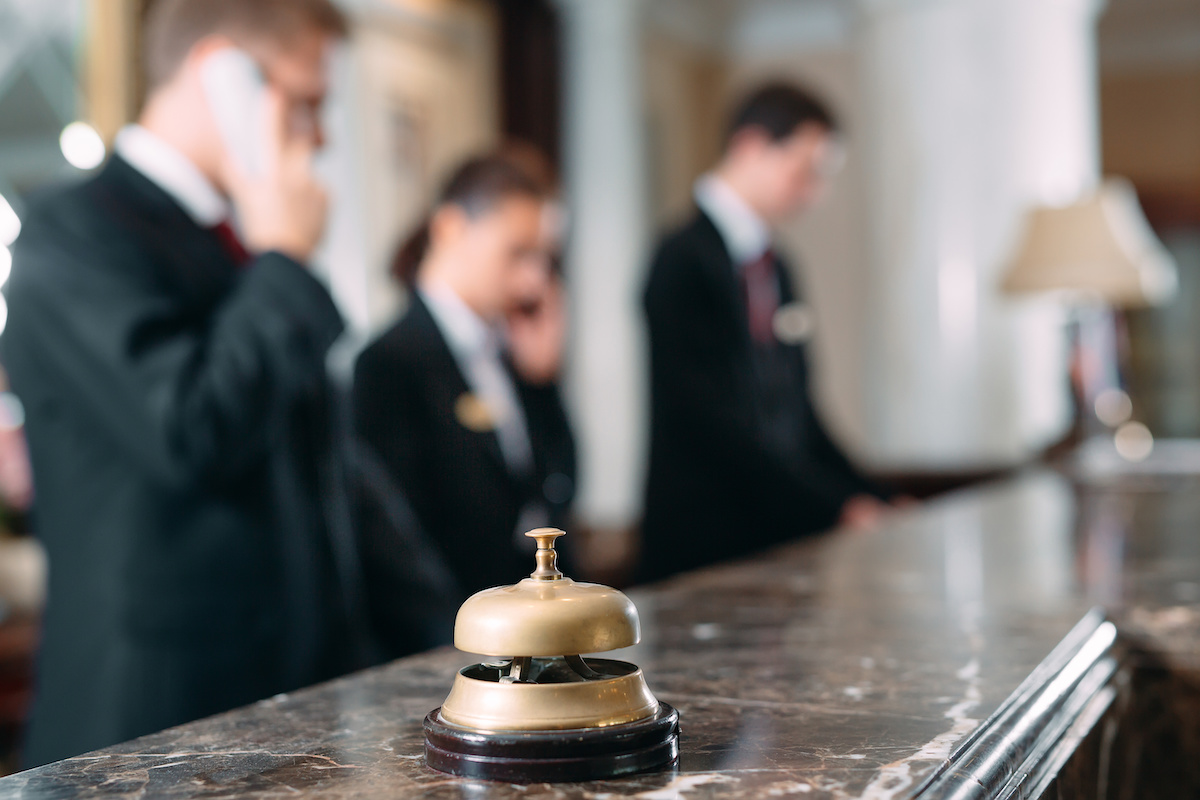As with any industry, finding the right customers is key to success. When you’re a hospitality vendor, it’s important to know who to target. As hospitality vendors, you want to make sure that the hospitality clients you choose to work with are a good fit for your business and vice versa–it’s a win-win for both parties.
So, if you’re looking for more hospitality clients, we have outlined the key steps to not only attracting the right kind but also how to convert and delight them for many years to come. Happy, long-term clients make for successful hospitality vendors.
Let’s dive in!
What are hospitality vendors?
Hospitality vendors are companies who provide services to hospitality clients in one or more of these areas: technology, service providers, and product providers.
Technology vendors could be anything from hospitality CRM providers to hospitality cloud storage companies and hospitality marketing agencies.
Service providers could be anything from hospitality event planning companies to hospitality staffing agencies.
Product providers make hospitality products. For example, hospitality product providers could create anything from hospitality equipment to hospitality industry magazines.
For any business looking to service the hospitality industry, there is a multitude of opportunities in a variety of categories.
Why should your business acquire more clients in the hospitality industry?
The hospitality industry is huge! According to Hotel Tech Report, hospitality is one of the largest job creators and economic contributors, accounting for over $500 billion in revenue, globally.
There are many types of business products and services that support all aspects of the hotel industry structure; brands, owners, and operators. Acquiring hospitality clients can mean big business for hospitality B2B vendors.
Additionally, hospitality clients are looking for the best hospitality products and services to meet their needs, which your company can provide with its expertise in hospitality.
A great example is that, on average, hotels renovate their hotel interiors and rooms every seven years. As a result of this, the hotel interior design and furniture business alone is significant. However, the hotel sector is a large market for several commercial goods and services.
RELATED: Hospitality Sales 2022: Challenges, Opportunities & Predictions
Understanding the unique challenges of the industry.
It’s no secret that B2B salespeople must be familiar with the market to which they’re selling. The hospitality industry, however, is filled with many quirks not found in most other modern sectors.
They include:
Always “Open”
In order to provide the best possible service to guests, hotel chains operate 24 hours a day, seven days a week. Their “busy hours” never end because their locations are worldwide.
Added Level of Red Tape
There’s a possibility that the hotels you want to work with are union properties, which might imply that special contracts must be drawn up for the purchase of new equipment or the introduction of new procedures. This adds an extra level of red tape to the transaction, making it more difficult.
How Can You Give Them an Edge?
With the success and dominance of Airbnb, hotels are attempting to discover strategies to give guests a more genuine and luxurious travel experience in order to compete with all of the new local hosts and their low-cost lodgings. How could your product or service help set them apart?
Clearly Understand Pain Points
Every hotel site is unique, and even if you’re an industry expert, you may not be aware of some of your client’s pressing issues. They might be concerned with pricing issues, labor costs, workforce difficulties, or a number of other factors. They could be dealing with a specific issue that no other hotel in their market is facing.
Here are some tips for attracting hospitality clients

Reaching out to hospitality clients can be difficult, especially if hospitality buyers are inundated with sales pitches and don’t have the time or resources to look through them all.
That’s why hospitality vendors should focus on building a solid base. That can be achieved by creating an SEO-optimized website, through content marketing, customer reviews, strategic partnerships, and then using a mix of owned, earned, and paid media channels to attract quality leads.
SEO Optimized Website
Your first step to attracting the right kinds of clients is to do a thorough review of your website and not only make sure the information is correct but that you’re also fully optimized for the right keywords.
Here are some quick tips for optimizing your website to attract hospitality clients:
- Understand your searchers intent
- Pick the right brainstorming topic – Google’s autofill tool really helps with this!
- Understand long-tail keywords
- Target low-competition words
- Use the right keyword tools – we love using Ubersuggest for keyword discovery
- Test and refine
Content Marketing
Content marketing allows marketers to take control of the customer experience and pull consumers in rather than push messages out into their audiences. This kind of strategy involves investing in content creation that educates and attracts potential hospitality buyers without selling too hard at first.
Our process here at Lure Agency involves a Science & Soul Strategy.
- Understand your customer – create a Buyer Persona to help
- Create content around the Buyers Journey (awareness, consideration, and decision) – it’s all about context
- Lead with value
- Organize and plan with a content calendar
- Analyze, tweak, refine
- Have fun!

Customer Reviews/Social Proof
We’ve talked a lot about social proof and customer reviews, and it’s not just for direct-to-consumer businesses! Harnessing the power of what others are saying about your business is a powerful B2B strategy, too.
You can easily tap into this strategy with a few quick tricks:
- Add testimonials – both written and video – to your website
- Ask customers to provide reviews on B2B review sites and through LinkedIn
- Consider your “personal brand” too – check your LinkedIn profile for Endorsements, and professional Reviews
Referrals, Referrals, Referrals
Despite the fact that hospitality employs roughly 16 million people in the United States alone, it sometimes appears as though it’s a tiny universe. Employees are frequently moving from one property to another and making new connections, so you never know where a connection you’ve established with a customer will lead you.
Take time to make the onboarding process as smooth as possible for your clients, and then nurture the connection afterward. This might be the key to a universe of referrals that expands ad infinitum.
Social Selling
Social selling can be used in hospitality just like any other industry, and it works best when you use all the tools available to you. Our advice? Use LinkedIn. Update your profile and utilize your connections. Join groups, weigh in on conversational posts and be an active participant. Social selling will help hospitality buyers find you through search queries or potential connections.
Here are some articles to help with your social selling strategy:
- Prospecting Blues? Social Selling Can Turn Things Around – Here’s Why and How
- 10 Quick & Dirty Skills You Need to Succeed with Social Selling
- Dive Deep Into These 11 LinkedIn “Do’s” or Social Selling Success
Strategic Partnerships
Another B2B marketing strategy hospitality vendors can use to gain exposure is through strategic partnerships. By teaming up with other hospitality vendors who provide complementary products and services to the hospitality company, you can cast your prospecting net even wider!
Get started by identifying complementary products to your own. The hospitality industry often uses multiple vendors for one project, like audio-visual companies, landscapers, and hotel decorators. Reach out to these businesses (especially if you’re already in talks with their client) and propose a collaboration.
Building Relationships
Hospitality vendors should foster relationships within their industry so they can attract clients who already know about their offerings. By doing so hospitality vendors can trust and demonstrate expertise which will ultimately attract hospitality buyers.
Dedicate a portion of your workweek nurturing your current relationships, while also building new relationships. LinkedIn is a great tool for this! Comment on posts, get involved in online industry discussions and congratulate colleagues on successes.
Additionally, you can build out your hospitality industry contacts through networking events, hospitality trade shows, online hospitality groups, and speaking engagements.
Paid Media Channels
Finally, hospitality vendors can also use paid media channels to spread the word about their products and services.
The hospitality buyers who will be interested in your hospitality vendor services are likely to use LinkedIn; it’s the best platform to target hospitality Industry professionals.
In Conclusion
Hospitality vendors, like hospitality buyers, are always on the lookout for new ways to grow their hospitality audience.
However, for vendors, it isn’t enough to simply show buyers your product; you also need to be proactive about engaging with them – whether through social selling or strategic partnerships. By using these B2B marketing strategies, hospitality vendors can get more hospitality clients.






